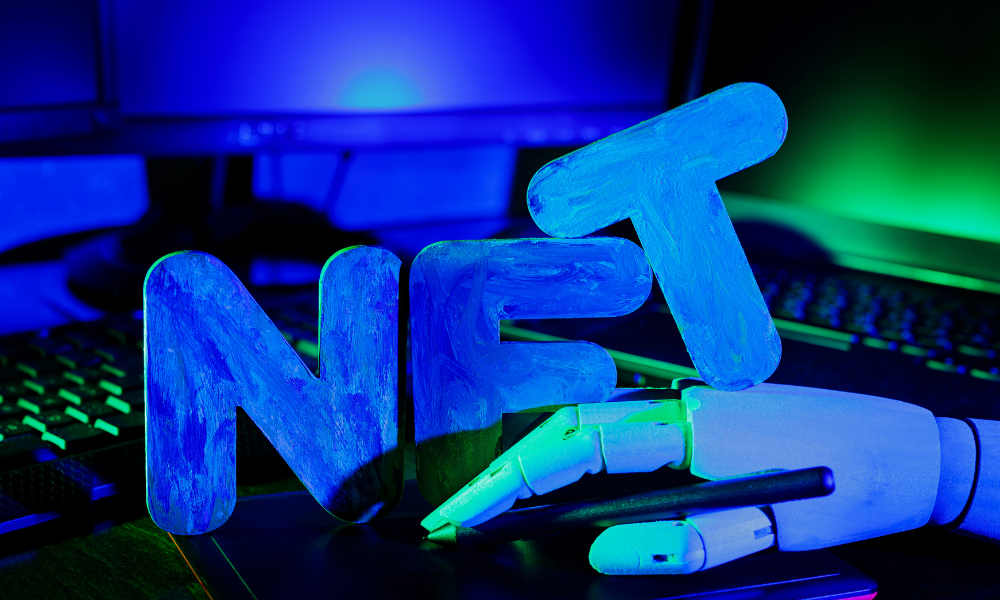
NFTs began vanishing. Significant administrations like MetaMask and Twitter were out of nowhere incapable to show pictures related to recently transferred tokens, despite the fact that the clients had clear records of possession. Something in the disseminated, decentralized innovation stack had turned out badly.
The issue was the NFT commercial center OpenSea, which was experiencing a data set blackout. The blackout cut down OpenSea's picture stacking API, sticking up any help that depended on it to transfer tokens.
 Trade With A Trusted Broker Trade With A Trusted Broker |
In a scene loaded with assailant decentralizes, a solitary organization had tracked down its direction to the focal point of essentially every item.
Providing details regarding the confusion, Vice spotted one client who had photoshopped the organization's logo to peruse "ClosedSea."
It was an abnormal second however a noteworthy one. A year into the NFT blast, it's difficult to mint an assortment or rundown a token available to be purchased without some way or another communicating with OpenSea.
The organization has turned into the focal merchant and the true master of local area rules.
Whenever a gorilla gets taken, the legitimate proprietor approaches OpenSea for help - and the stage has turned into the absolute most significant chokepoint for impeding a deal. It's additionally the biggest single market any time a token is recorded.
Indeed, even tokens that aren't stamped on OpenSea at last track down their direction thereby straightforward gravity.
Furthermore, as the blackout showed, even Web3 projects with no unequivocal association with OpenSea are regularly profoundly subject to the organization's framework.
It's an odd circumstance for an organization in the NFT business. At its heart, OpenSea is giving basic, concentrated assistance (the capacity to view and exchange tokens on the blockchain) that is based on top of a decentralized blockchain that is undeniably more turbulent.
The digital currency administration Coinbase (another noticeable Andreessen Crypto speculation) followed a comparable playbook to an $85 billion IPO - however, it's not satisfactory similar stunts will work in the wild of Web3.
OpenSea declined to make chiefs accessible for meet for this piece, however, when gone after the remark, organization agent Abram Smith accentuated the organization's grand desires.
"It's conceivable that one day, almost all that we own will be represented on the blockchain," Smith said, "and OpenSea's chance is to turn into a central objective for these new economies to flourish."
In any case, numerous financial backers and examiners see the organization's situation as more unstable than you may suspect. It's effectively the best organization to rise up out of the NFT blast of the previous year, handling countless dollars in exchanges consistently.
At a specialized level, it's certain, as the blackout showed. Yet, it's astoundingly far off from the sketchy token-drop culture that has energized the new advanced craftsmanship blast - and many aren't don't know that Web3's decentralized future will have space for a go-between stage like OpenSea.
"I think the inquiry is, is OpenSea like an AOL or a Netscape, or are they going to have the option to keep up with their hang available," said Brian Krogsgard, who has a crypto webcast called UpOnly. "Furthermore I imagine that is an extremely open inquiry."
virtually every tokenized blockchain project, OpenSea started with a game with regards to felines. Sent off in 2017, CryptoKitties was the primary major NFTs - a bunch of detectable
Breedable feline pictures are recorded on the Ethereum blockchain. Showing up in the midst of developing blockchain publicity, the task set off more than $10 million in deals surprisingly fast.
There was a line of follow-up projects from outsider designers: KittyHats let you decorate your kitties, while KittyExplorer (from a similar engineer) let you investigate the general biological system. It was not difficult to snicker at - yet for genuine adherents, the potential was charging.
OpenSea was sent off in December 2017 with an eye towards catching that potential. CryptoKitties charged a 3.5 percent commission on all deals, so OpenSea brought the number down to 2.5 percent and set to work assembling a more extensive stage.
| Trendy News: JP Morgan Was Comforted By The Minister Of Finance |
The two fellow benefactors were youthful yet currently all around prepared: CTO Alex Atallah was working for a millennial-centered surveying firm, while CEO Devin Finzer had effectively established a case looking through an organization obtained by Credit Karma.